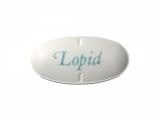- US toll free: +1 89288 523 71
- Free shipping for all orders with sum $200
[gtranslate]
| Thumbnail | Description | Doses | Pills | Price | Add To Cart |
|---|---|---|---|---|---|
 |
+ Package delivery insurance
+ Next orders 10% discount
|
30mg | 30pills | $70.99 | |
 |
+ Package delivery insurance
+ Next orders 10% discount
|
30mg | 60pills | $137.99 | |
 |
+ Package delivery insurance
+ Next orders 10% discount
|
30mg | 90pills | $197.99 | |
 |
+ Free standard airmail service
+ Package delivery insurance
+ Next orders 10% discount
|
30mg | 120pills | $250.99 | |
 |
+ Free trackable courier service
+ Package delivery insurance
+ Next orders 10% discount
|
30mg | 180pills | $359.99 | |
 |
+ Free trackable courier service
+ Package delivery insurance
+ Next orders 10% discount
|
30mg | 270pills | $528.99 |

Common Use
Lopid is a fibric acid derivative similar to fenofibrate (Tricor) and is used to lower triglyceride levels and increase high-density lipoprotein (HDL) cholesterol. While the exact mechanism of action is not fully understood, Lopid helps reduce the risk of atherosclerosis, stroke, and heart attacks. It is particularly effective in treating elevated cholesterol and triglyceride levels in patients with pancreatitis or other lipid metabolism disorders.
Dosage and Administration
The typical recommended dose of Lopid is 600 mg taken twice daily, 30 minutes before breakfast and dinner. Always follow your healthcare provider’s instructions precisely for best results.
Precautions
Lopid should be used as part of a comprehensive treatment plan that includes a proper diet, regular exercise, and weight control. Avoid foods high in saturated fats or cholesterol. Regular blood tests are necessary to monitor lipid levels and assess liver and kidney function. Inform your doctor if you have a history of liver disease, gallbladder disease, or severe kidney disease, as these may require special precautions or adjustments in therapy.
Contraindications
Lopid is contraindicated in patients who are allergic to gemfibrozil, have active liver or gallbladder disease, severe kidney dysfunction, or are taking repaglinide (Prandin) due to increased risk of serious drug interactions.
Possible Side Effects
Seek immediate medical attention if you experience any of the following:
Severe upper abdominal pain (especially after eating)
Jaundice (yellowing of the skin or eyes)
Blurred vision, eye pain, or seeing halos around lights
Painful or difficult urination
Other side effects may occur. Report any unusual or persistent symptoms to your healthcare provider.
Drug Interactions
Using Lopid with statins such as simvastatin, lovastatin, atorvastatin, and others increases the risk of rhabdomyolysis, a rare but serious muscle injury that can lead to kidney failure and death. Symptoms may appear within weeks or even months after starting both medications. Concomitant use of Lopid and statins is generally not recommended.
Warfarin: Increased risk of bleeding; dosage adjustment may be required.
Repaglinide: Lopid raises its blood levels, increasing hypoglycemia risk.
Cholestyramine and Colestipol: These medications reduce Lopid’s effectiveness. Lopid should be taken 1 hour before or 4–6 hours after these agents.
Missed Dose
If you miss a dose, take it as soon as you remember. If it is nearly time for your next dose, skip the missed one—do not double up. Resume your regular dosing schedule as directed.
Overdose
Symptoms of overdose may include nausea, vomiting, diarrhea, stomach cramps, and joint or muscle pain. If you suspect an overdose, seek emergency medical attention promptly.
Storage
Store Lopid at room temperature between 68–77°F (20–25°C), away from moisture, heat, and light. Keep out of reach of children and pets.
Disclaimer
This information is intended for general educational purposes only and does not replace professional medical advice, diagnosis, or treatment. It may not include all uses, precautions, interactions, or adverse effects. Always consult your healthcare provider before starting or discontinuing any medication. We do not accept liability for any harm resulting from reliance on the information provided.
| Doses | 30mg |
|---|---|
| Pills | 120pills, 180pills, 270pills, 30pills, 60pills, 90pills |
Reviews
There are no reviews yet.